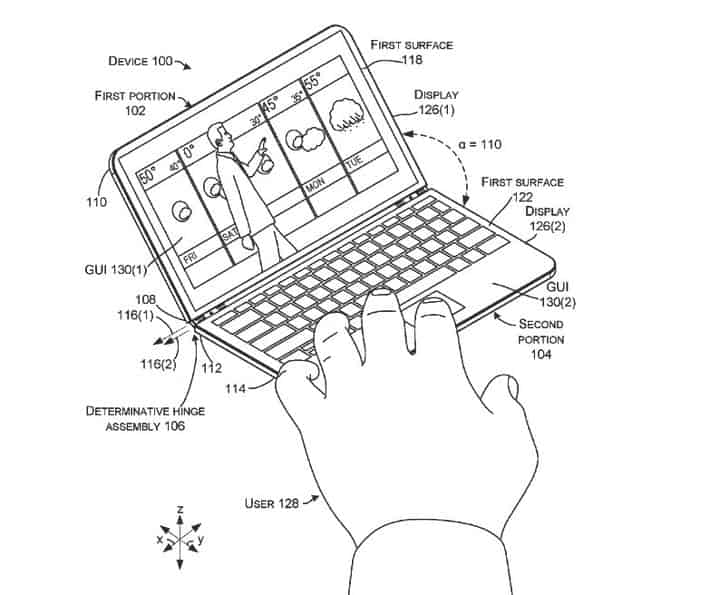
One of the most anticipated products, at least from PC giant Microsoft, is the long-rumored Surface Phone. We really don’t have any idea if such a product exists, or if it does what it will look like and when it will arrive. But there is enough noise that it’s safe to assume, at least, that Microsoft is working on something new. One good source if you’re wanting to make a guess is the American patent system and one recent filing hints that we might end up seeing a mobile device with a hardware-based laptop mode.

We’re looking here at U.S. patent application US20180059735, which includes images and descriptions that indicate a laptop mode for what’s assumed is a “Project Andromeda” device. So far, the best bet is that the Surface Phone will end up being a pen-enabled, dual-screen device with cellular capabilities and that it will run Microsoft’s upcoming version of Windows 10 that morphs the user interface base on device design and capabilities.
If you follow along with all of the various rumors, you will likely notice that this patent filing is quite similar to some others. And, it makes some sense that a dual-screen device will incorporate a virtual keyboard allowing work to be viewed on one of the displays and data to be entered on another. That is nothing new.
What seems to be different here is the use of a “determinative hinge assembly” that can either allow the two panels to lay flat and create one large display or to hold the display at an angle and thus mimic a laptop PC. Building such a capability into the machine on a hardware level indicates Microsoft would have specific plans for a distinct laptop mode — assuming that this product is actually in development.
That is the crux of the matter, of course. Companies apply for hundreds (or thousands) of patents for ideas that never make it into shipping products. What makes this patent most interesting is that it’s so consistent with many others that have surfaced over the last several months. Given Microsoft’s work on developing Windows 10 functionality that would support such a device, it’s reasonable to assume that something is on the way.
The company gets a ton of grief for exiting the smartphone market, as well as for being so late to the game. This device, should it see the light of day, would represent a new approach to attacking the mobile market — something that the Surface line has accomplished quite well for Microsoft in other areas.
